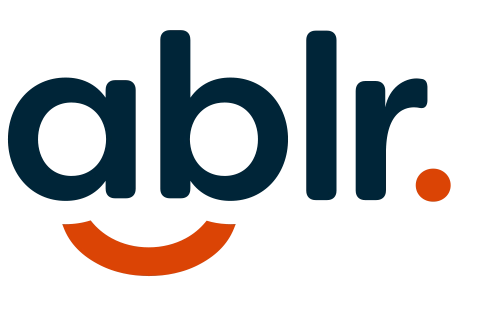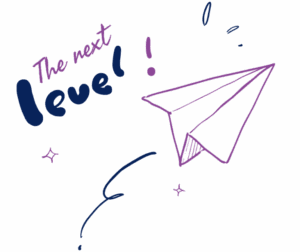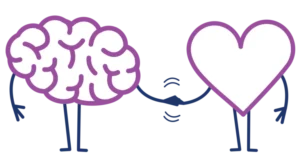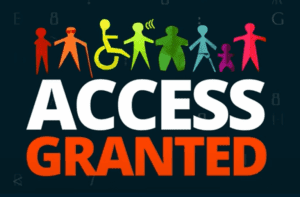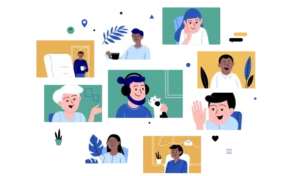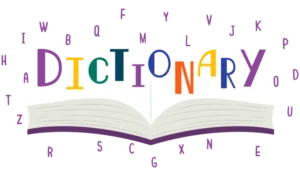by Susanne Meyer, Ablr Employee Analyst
As stay-at-home orders continue, boredom is increasingly becoming a problem. The closets are organized, the light bulbs are changed, and still there is no end in sight. We have an endless supply of hours to fill while sitting at home, and often not enough interests and hobbies with which to fill them. In this blog post, I would like to shine a spotlight on some accessible sources of online entertainment that everyone, including the visually impaired, can enjoy. I’ll start the list, and I’m hoping that others will contribute their own ideas.
One app that has recently provided me with hours of entertainment is Blinkist. This app contains summaries of non-fiction books on a wide variety of topics, focusing on extracting and highlighting the key ideas. Blinks can be read in print, or accessed as audio files. The platform is entirely accessible, and $4.99 a month or $49.99 per year, the app is very affordable. Since I’ve joined, I’ve finally gotten around to “reading” numerous books that have been on my list for years. It takes about 15 minutes to listen to — perfect for bedtime reading (and eventually, the commute to work), and you’ll go to sleep wiser than you woke up.
Another plan I have for quarantine is to take a course through edX. This learning management system was selected to host the World Wide Web Consortium’s Introduction to Web Accessibility course. While there are some accessibility hiccups, edX is largely accessibly to screen readers and other assistive technology. It also allows subscribers to audit courses completely free of charge. The app offers courses on a dazzling range of topics offered by many of the world’s greatest universities — I signed up for a course on free will, but there are also courses on professional skills such as programming at various levels of expertise, as well as a myriad of courses on personal development. edX joins Coursera (and others) in the free online-learning arena for participants who are not currently enrolled at a university. Coursera checks all the right boxes when it comes to accessibility — most pages and features are accessible with screen readers, the platform is periodically reviewed by an accessibility expert, and the Coursera team maintains a dedicated email address for accessibility-specific complaints and requests. It currently plays host to Yale University’s most popular course in history: “The Science of Well Being”. This means that you can now be a Yale student for free, from your couch.
Another source of never-ending online entertainment are blog sites. There are many of them, but I personally have been using Medium. Medium costs $5 per month or $50 for a year. Membership gives readers access to an unlimited number of blog posts on all kinds of topics authored by a huge community of contributors. Just today, the home page suggests articles on such eclectic topics as the black plague’s impact on history, the benefits of cannabis, and why expensive weddings are not worth it. Medium blog posts are accessible to screen readers for the purposes of reading. However, Medium — as is common among blogging platforms — is somewhat hit-and-miss in its compatibility with screen readers when it comes to its posting features. Despite the site’s popularity, it still struggles with several accessibility barriers that might hinder authors with disabilities from posting on it. Now, more than ever, is the time to call these sites and apps out on it, and fix the accessibility issues that might fall by the wayside when other priorities prevail. Because of how much more free time we have, and because we are all finding ourselves in unfamiliar circumstances that are certain to produce a novel and interesting ideas, we have to make sure that everyone, including people with disabilities, are able to voice these thoughts online. I, for one, would hate to miss them because of a simple accessibility issue.
These are only a few sources of online entertainment, and perhaps some of the less obvious ones. Of course, there are the giants, such as Netflix, which prides itself on providing audio descriptions and closed captioning for almost all of its content, and especially for its original series — rest assured that no one needs to miss an episode of Tiger King because they have a disability. Similarly, Amazon Prime Video offers audio description and closed captioning for the majority of their content. Its twin, Amazon Music, is accessible by voice through Alexa. Hulu, meanwhile, has recently demonstrated its commitment to accessibility by implementing better text legibility and making the platform’s menus accessible to screen readers. Audible, which differs from the above-mentioned Blinkist in offering audiobooks in their entirety, is a household name to most visually impaired people. Given that audiobooks were originally created for people who are blind, one might expect that Audible would be reasonably accessible. While this is mostly true for the mobile app, the Windows version contains so many accessibility issues that it is unusable. Now that people are cooped up with their computers, fixing this has taken on extra urgency. A final shout-out goes to community libraries. Although they are currently closed, many libraries let their members borrow eBooks for free. Whether or not these are accessible depends on how they are coded and what applications can be used to read them. Check out whether your library offers this service, and whether it is accessible, so that you don’t miss your chance to catch up on your Nicholas Sparks.
This is, of course, not meant to be a comprehensive list of accessible online entertainment options. Rather, it is a start, and reflects only one author’s preferences. But I am hoping that readers will contribute their own favorites so that we can build a hub of ideas for those looking for new sources of entertainment. Use the opportunity to give some recognition to an app that does a good job in being accessible to everyone — or to call out one that does not. Contact us with your thoughts, or leave a comment below!
